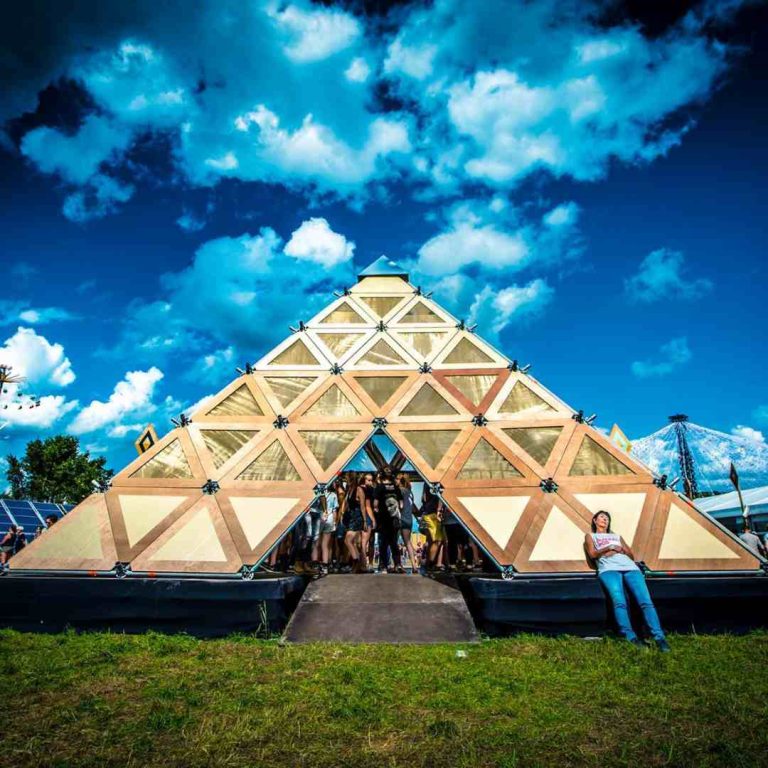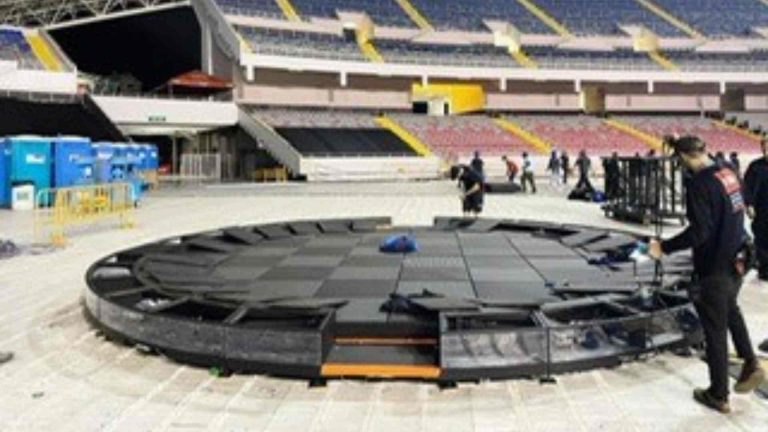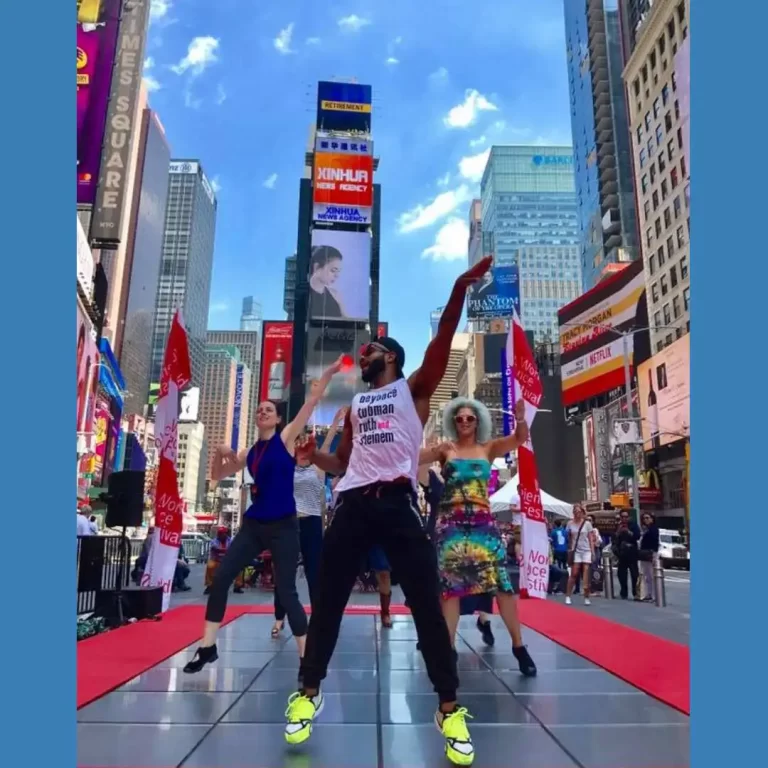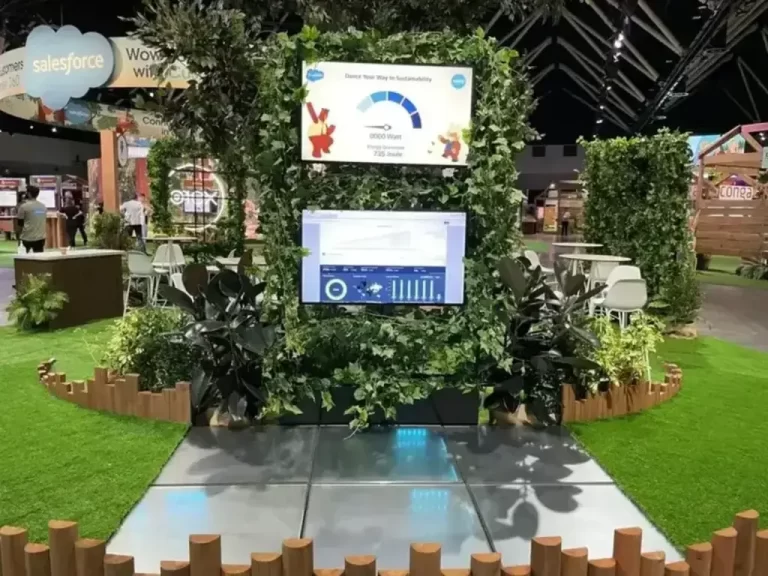Showcasing your commitment to sustainability is a surefire way of educating all attendees of its importance.
Promoting sustainability at events and holding sustainability events hold significant importance in today’s world, where environmental concerns and the need for sustainable practices are at the forefront of global discussions. Such moves provide a platform for individuals, organizations, and communities to come together and actively contribute to the ongoing efforts of creating a more sustainable future.
With the ever-growing concern over climate change, it is crucial for event managers and event organizations to take proactive steps in educating event attendees on sustainable energy. By raising awareness and promoting sustainable energy practices, we can create greener events and contribute to a more sustainable future.
This blog post aims to explore various approaches that event managers can adopt to educate attendees on this subject and reduce the carbon footprint of events.
Understanding Sustainable Energy
Before delving into the methods of educating event attendees, it is important for every event organizers and managers to establish a solid understanding and importance of sustainable energy. It refers to the production and consumption of energy in a manner that minimizes the negative impact on the environment. This includes reducing greenhouse gas emissions, promoting renewable energy sources, and employing energy-efficient technologies.
As an event organizer, showcasing your knowledge of and commitment to sustainability not only sets a positive example but also becomes a powerful educational tool to highlight the importance of sustainable practices to event attendees. By incorporating relatable initiatives into your event planning and execution, you can create a tangible and impactful experience that educates attendees about the significance of sustainability.

Ways To Educate Event Attendees on Sustainable Energy
Incorporating Sustainable Energy Technologies
This is a powerful way to educate attendees about sustainable energy. Showcasing technologies like energy tiles, kinetic energy devices, and Energy Floors, event managers can create interactive and engaging experiences that demonstrate the potential of renewable energy.
Imagine attending an event where every step you take generates renewable energy. Energy tiles are an innovative technology that captures kinetic energy generated by the movement of event attendees. These tiles are installed on floors or walkways, converting footsteps into electrical power. Attendees can witness firsthand how their actions, such as walking or dancing, can generate this clean energy.
To educate event attendees about energy tiles, event managers can incorporate interactive displays near the tiles, explaining how the technology works. Demonstrations and visuals can engage attendees and encourage them to participate actively, knowing their steps can make a difference. Additionally, incorporating real-time energy output displays can help attendees track their collective impact, fostering a sense of accomplishment and responsibility.
These technologies not only provide a practical demonstration of sustainable energy but also spark curiosity and inspire attendees to explore sustainable practices in their own lives. This way events become platforms for education and empowerment, driving positive change towards a safer future.
Sharing Successful Examples: Coldplay and Energy Floors
During their 23/24 world tour, Coldplay incorporated Energy Floors into their concerts, enabling the audience’s movements to power the stage lighting while enjoying the music. This creative approach not only engaged the audience but also served as a powerful educational tool, demonstrating the positive impact of sustainable energy in a captivating manner.
This is one notable example that highlights the potential of sustainable energy in the event industry. Successful cases like this serve as powerful tools for educating and motivating event attendees towards a greener future.
Event managers can use this example to inspire attendees and emphasize the potential of sustainable energy solutions by highlighting Coldplay’s efforts to reduce their carbon footprint during concerts and this can in turn inspire attendees to take similar actions in their daily lives.
For instance, dedicating a section of the event website to Coldplay’s sustainability efforts, along with information about Energy Floors, event organizers will provide attendees with valuable resources for learning and taking further action after the event. Additionally, incorporating Coldplay’s music into the event will also create an emotional connection to the band’s message, reinforcing the importance of sustainable energy in a memorable way. Read the full story on Energy Floors and Coldplay here

Engaging Attendees with Interactive Exhibits
Event managers can set up interactive displays that show various aspects of sustainable energy, such as energy-efficient technologies, renewable energy sources which can include solar panels, wind turbines, or energy-efficient appliances.
They can create immersive, hands-on experiences and attendees can explore, ask questions, and gain a deeper understanding of how these technologies work, their environmental benefits and also learn the impact of their energy consumption choices and discover practical ways to reduce their carbon footprint.
Kinetic energy is another sustainable energy solution that can be integrated into events. By harnessing the movement of attendees through kinetic energy harvesting devices, event managers can power various elements of the event, such as lighting, sound systems, or charging stations for electronic devices.
Educational workshops and seminars at the event can highlight the concept of kinetic energy and its potential to transform the way we generate power.
These activities and interactions will also allow attendees to experience the process of energy generation firsthand, deepening their understanding of sustainable practices.
By engaging them in this way, one can effectively educate and inspire them to adopt sustainable energy practices in their own lives, contributing to a more sustainable future.
Collaborating with Sustainability Experts
Teaming up with sustainability experts is an invaluable approach to educating event attendees on sustainable energy. These experts bring deep knowledge and experience in the field, providing valuable insights and practical tips. By hosting informative sessions, workshops, or panel discussions led by these professionals, event managers can offer attendees an opportunity to learn from the best.
This helps create a platform for attendees to engage in meaningful discussions where they ask questions, and gain a deeper understanding of sustainable energy practices. The expertise and credibility of these experts enhance the educational value of the event, empowering attendees to make informed choices and take actionable steps towards a more sustainable future.

Promoting Green Events and Partnerships
Another approach to raising awareness about sustainable energy is to actively promote green events and partnerships. Event managers can emphasize their commitment to sustainability by highlighting the measures taken to reduce the carbon footprint of the event, such as using renewable energy sources, minimizing waste, and implementing efficient transportation options.
Additionally, partnering with sustainable energy organizations or initiatives can amplify the event’s message and encourage attendees to embrace sustainable practices beyond the event itself.
Leveraging Social Media and Online Platforms
In today’s digital age, social media and online platforms provide excellent avenues for educating event attendees on sustainable energy. Event organizers can create dedicated hashtags and share content related to sustainable energy, such as informative articles, success stories, and practical tips related to sustainable energy practices through these digital channels.
By utilizing engaging visuals, videos, and infographics, event managers can effectively communicate the importance of sustainable energy and inspire attendees to adopt eco-friendly habits. This way, event organizers can reach a wider audience, spark discussions, and inspire attendees to adopt sustainable energy practices in their daily lives.
Additionally, partnering with sustainable energy organizations or initiatives can amplify the event’s message and encourage attendees to embrace sustainable practices beyond the event itself.
Measuring and Communicating the Environmental Impact
This involves assessing energy consumption, water usage, waste generation, and carbon emissions. Utilizing tools like carbon calculators and energy monitoring systems can provide accurate measurements. Quantifying the impact creates a baseline that can be used to track improvements over time and identify areas for optimization.
Once the environmental impact is quantified, event managers can effectively communicate these findings to event attendees. This can be done through various channels such as signage, event programs, and digital platforms. Clear and concise messaging can highlight the energy consumption, carbon emissions, and waste generated during the event, making attendees more aware of the environmental consequences of their actions.
Alongside communicating the environmental impact, event managers should emphasize the sustainable energy solutions implemented during the event. This can include the use of renewable energy sources, energy-efficient technologies, waste management systems, and recycling initiatives. By showcasing these sustainable practices, event managers can educate attendees on the importance of adopting similar measures in their daily activities.

Conclusion
Event managers and organizations have a unique opportunity to educate event attendees about sustainable energy practices and raise awareness of the importance of reducing our carbon footprint.
By engaging attendees, hosting sustainable events, collaborating with energy partners, and making use of social media platforms, event managers can create awareness and empower attendees to make informed choices and embrace sustainable energy solutions in an effective and enjoyable way.
